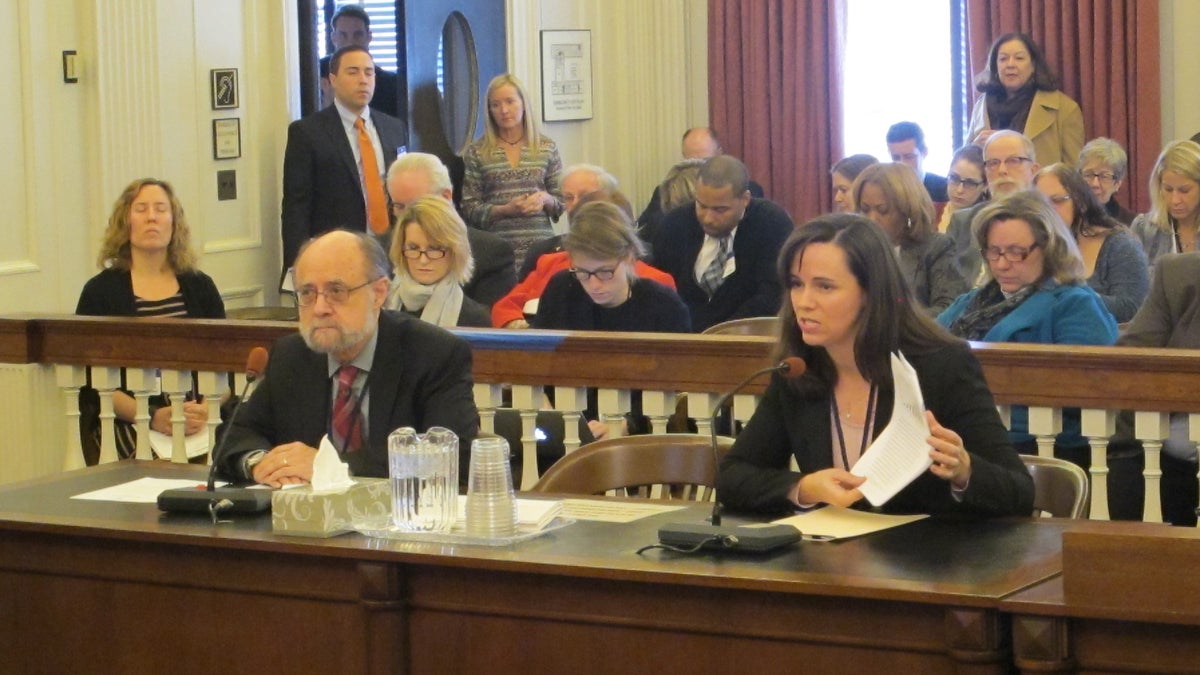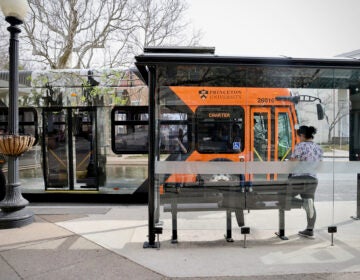Lawmakers ponder how to help 2.8 million living in poverty in New Jersey

Ray Castro and Serena Rice testify at Assembly Human Services Committee hearing. (Phil Gregory/WHYY)
Anti-poverty advocates are telling New Jersey lawmakers more must be done to help the estimated 2.8 million state residents living in poverty.
Many poor people aren’t getting the assistance they need to make ends meet and advance into the middle class, said Assemblywoman Angela McKnight, D-Hudson.
“I’ve gone to the social services department to help seniors and family members get onto welfare. I’ve seen the cuts that they have gone through,” she said. “I’ve seen the massive paperwork that they have to get in order to get food stamps, and the food stamps are very minimum.”
Because of the costs, most welfare recipients are not enrolled in training or education programs that would help them advance toward a middle-class career, said Serena Rice with the Anti-Poverty Network of New Jersey.
“They’re being put into work-experience projects where often they’re doing very menial work. It can be as menial as sitting seven hours in a room reading the newspaper,” Rice said. “This is not a welfare-to-work program. This is a welfare-to-depression program.”
Cuts in social service programs also make it difficult for low-income residents to make ends meet, said advocates for the impoverished.
More than 80 percent of poor children in New Jersey are not receiving financial support from the Temporary Assistance to Needy Families Program, said Ray Castro with New Jersey Policy Perspective.
“Granting billions of dollars in tax credits to corporations while cutting back on basic assistance to children is unconscionable. It is also a poor investment. Child poverty costs New Jersey an estimated $13 billion a year,” Castro said. “So we can either pay now to support these children or pay much more later.”
Stuart Weiner with the Community Health Law Project said low-income residents with certain kinds of drug offenses are banned from getting benefits from the state-funded general assistance program.
“We have no option to help them get into general assistance. Being in general assistance is a prerequisite to getting emergency housing assistance,” said Weiner. “So these folks end up in shelters, in tent cities, living in abandoned buildings, sleeping under a bridge.”
Four Assembly committees held hearings to get input to consider in drafting new legislation.
Assembly Speaker Vinnie Prieto said he’s not sure how much anti-poverty initiatives might cost.
“Hopefully, it’s not much. Hopefully, we can do a lot more, see how we can focus on federal dollars that we can distribute better,” he said. “How do we get it to the people that need it?”
WHYY is your source for fact-based, in-depth journalism and information. As a nonprofit organization, we rely on financial support from readers like you. Please give today.




